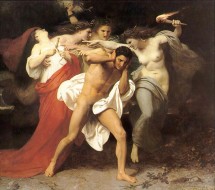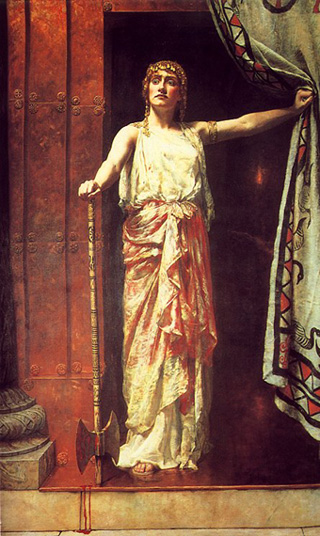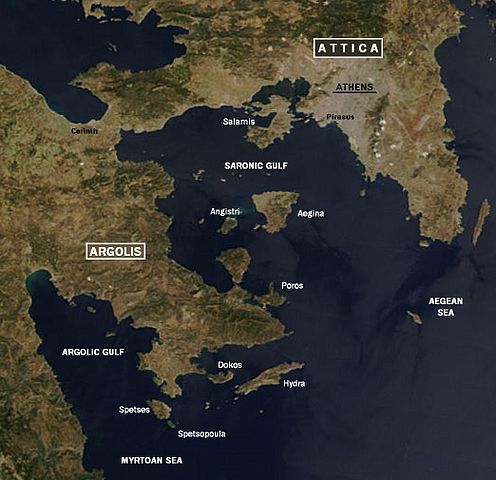House of Names by Colm Toibin

"I don't know why everyone is SHOUTING..." (Orestes pursued by the Furies - William Adolphe Bouguereau,1862)
Irish novelist Colm Tóibín’s 2016 re-imagining of the sacrifice of Iphigenia by her father, Agamemnon, his return from Troy and the bloody aftermath, starts well. The longest, first part is narrated by Agamemnon’s enraged wife, Clytemnestra, and her ghost narrates the shortest, part five. Clytemnestra’s voice is the best, capturing something of the remote, wild affect of the ancient Greek verse we know:-
“We are all hungry now. Food merely whets our appetite, it sharpens our teeth; meat makes us ravenous for more meat, as death is ravenous for more death. Murder makes us more ravenous, fills the soul with satisfaction that is fierce and then luscious enough to create a taste for further satisfaction”.
Oreste’s story is told in the third person in the second, fourth and final, sixth part. His sister Electra narrates part three. Unlike Clytemnestra’s story, those of her children, Orestes and Electra, are dull and thin. The reason for Orestes’ famous absence from the palace in Argos for some years is ingenious, but the telling of the story of those years is difficult to believe in, and dull, like Tóibín’s Orestes himself. Upon his return, Orestes sulks about the palace, without even the philosophical musings of a Hamlet to evoke our interest. When we learn how Orestes has been manipulated (although we wonder to what effect), like Orestes, we shrug and move on. Electra, the tragic daughter of myth, has no presence here. Her possible madness is suggested in one good passage set at a feast and then dropped, just as what could have been a chilling and ethereal account of the meeting of Orestes and his mother’s ghost fails because there is no depth to Orestes; no message his mother can give. No Furies will pursue him. Clytemnestra’s paramour, accomplice and bane, Aegisthus is a smooth, grinning magician. It is of course Tóibín’s prerogative to make pallid weaklings of these towering figures of myth, if he so chooses, but to tell of their lives as they perceive them is leave the reader outside of the story. The more minor characters are no more effectively realised. Leander, the rebel leader, is a paper hero. His sister Ianthe exists as scenery.

After that first chapter all momentum and tension are dropped, as is any real attempt at ‘Greekness’. Apart from some nice invocations of dawn, we have little feeling of being in an ancient Greek palace or its surrounds. We are reading a flat tale which could have been set anywhere. Indeed, there are moments reminiscent of scenes set in a Scottish castle. Here Clytemnestra has persuaded Aegisthus to creep past two guards into the room where four of Agamemnon’s men sleep:-
“On one of those nights, having fallen into the deepest sleep, I was woken by the sound of an owl screaming at my window and then by some other sound. I lay listening, hearing footsteps from outside my door and voices and shouts to the guards that they must protect me with their lives. …Then Orestes was rushed into my room by two men.
‘What has happened?’ I asked.
‘The four men who came with you were found in their own blood, murdered by their guards.’ one of the men said.
‘Their guards?’
‘Do not worry. The guards have been dispatched.’
I looked out and saw the bodies being carried along the corridor outside and then I returned to the room and spoke softly to Orestes to distract him. When Electra came…..she whispered to me that she had spoken to the elders, who assured her that this had been a feud over cards or dice between the guards and the four men. They had been drinking.
‘The guards’ faces were all badged with blood,’ she said, ‘and so were their daggers. They must have been drunk, they will do no more drinking now, no more killing either.”
Back to Denmark. Orestes is debating whether or not to act:-
“His father, it struck him would never have done nothing. He remembered his father’s strong voice and tone of command. If his father were here, he might move warily, but he would never stay in his room out of fear. He would take action.”
And note, that is Tóibín’s Orestes telling us that Agamemnon was a man of action. “His father, it struck him would never have done nothing.” Here is Aeschylus’s Chorus (Robert Fagles’ translation) telling us the same thing –
“And once he slipped his neck in the strap of Fate,
his spirit veering black, impure, unholy,
once he turned he stopped at nothing,
seized with the frenzy
blinding driving to outrage-
wretched fury, cause of all our grief?”
Perhaps this is unfair. Tóibín’s Orestes is simple-minded and his Agamemnon insipid. But at no time do we feel this Greek terror and fury, the pathos and pity that Tóibín must have aspired to invoke.
Scotland, Denmark Ireland; We’re anywhere but mythical Greece. The marching about of Leander and his men and Orestes’s intermittent, useless involvement could all be set in Wallace’s Scotland, Hamlet’s Denmark, Ireland during the Troubles or Greece during the second world war. But this fiction does not have the gravitas to make the reader pause to think, “Ah! this is universal”. The gods are gone. Nothing replaces them. Zest and vigour and pathos and pity and terror seem to have died at Troy, far, far from this Argos.
Leave a comment...
While your email address is required to post a comment, it will NOT be published.




1 Comment